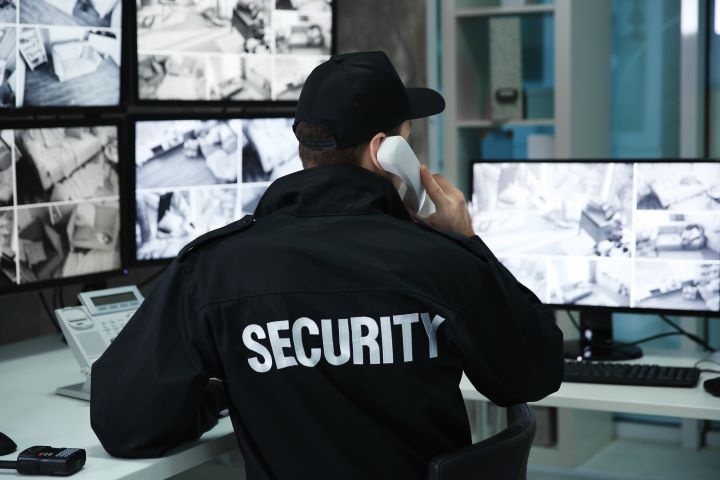Considering a Job in Security? Here’s What You Should Know
The security industry values responsibility, awareness, and the ability to stay calm in different situations. If you're curious about what it's like to work as a security officer, this short guide will give you a general overview.Security roles may include working at businesses, events, offices, or retail spaces. Common responsibilities include monitoring, communicating with visitors, and following safety procedures.

What does a typical security job involve?
Security jobs encompass a wide range of responsibilities, primarily focused on protecting people, property, and assets. As a security professional, you may be tasked with monitoring surveillance systems, conducting patrols, managing access control, and responding to emergencies. Your duties could include working at businesses, events, offices, or retail spaces, depending on your specific role and employer. Common responsibilities involve communicating with visitors, following safety procedures, and maintaining a vigilant presence to deter potential threats.
What skills are crucial for success in the security field?
To excel in a security role, you’ll need a combination of hard and soft skills. Strong observation skills are paramount, as you’ll be required to stay alert and identify potential security risks. Effective communication is equally important, as you’ll interact with various individuals, from colleagues to the general public. Other essential skills include:
-
Physical fitness and stamina
-
Problem-solving abilities
-
Conflict resolution
-
Attention to detail
-
Adaptability to different situations
-
Basic computer proficiency for report writing and surveillance system operation
What qualifications are required for security positions?
The qualifications needed for security jobs can vary depending on the specific role and employer. However, some common requirements include:
-
A high school diploma or equivalent
-
Valid security license or certification (requirements vary by country and region)
-
Clean criminal record
-
First aid and CPR certification
-
Valid driver’s license (for some positions)
Some specialized security roles may require additional qualifications, such as a degree in criminal justice or law enforcement experience. It’s essential to research the specific requirements for the positions you’re interested in pursuing.
What are the different types of security jobs available?
The security industry offers a diverse range of career opportunities. Some common types of security jobs include:
-
Security Guard: Monitoring premises and ensuring the safety of people and property
-
Loss Prevention Specialist: Preventing theft and fraud in retail environments
-
Bodyguard: Providing personal protection for individuals
-
Security Systems Technician: Installing and maintaining security equipment
-
Cybersecurity Specialist: Protecting digital assets and information systems
-
Event Security: Managing safety and crowd control at public gatherings
What can you expect in terms of work environment and schedules?
Security jobs often involve non-traditional work schedules, including nights, weekends, and holidays. Many positions require shift work, which can be advantageous for those seeking flexible hours. The work environment can vary significantly depending on the specific role and employer. You might find yourself working in a corporate office, retail store, government facility, or even outdoors at events or construction sites. In Belgium, security professionals may have opportunities to work in various settings, from bustling city centers to international organizations headquartered in Brussels.
What are the prospects for career growth and advancement?
The security industry offers numerous opportunities for career advancement and specialization. As you gain experience and additional qualifications, you may progress to supervisory or management roles. Some potential career paths include:
-
Security Supervisor or Manager
-
Security Consultant
-
Risk Assessment Specialist
-
Corporate Security Director
-
Emergency Management Coordinator
Continuous professional development and staying updated on industry trends can enhance your career prospects in the security field.
| Position | Average Annual Salary (EUR) | Experience Level |
|---|---|---|
| Entry-level Security Guard | 25,000 - 30,000 | 0-2 years |
| Experienced Security Officer | 30,000 - 40,000 | 3-5 years |
| Security Supervisor | 40,000 - 50,000 | 5+ years |
| Security Manager | 50,000 - 70,000 | 7+ years |
| Corporate Security Director | 70,000 - 100,000+ | 10+ years |
Prices, rates, or cost estimates mentioned in this article are based on the latest available information but may change over time. Independent research is advised before making financial decisions.
In conclusion, a career in security can offer stability, diverse opportunities, and the satisfaction of contributing to public safety. By understanding the responsibilities, required skills, and potential career paths, you can make an informed decision about whether a job in security aligns with your professional goals. Remember to thoroughly research specific positions and requirements in your local area to ensure you’re well-prepared for a successful career in this dynamic field.






